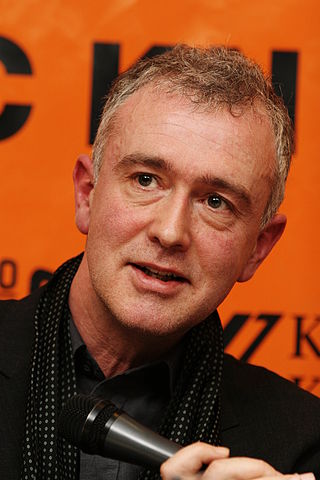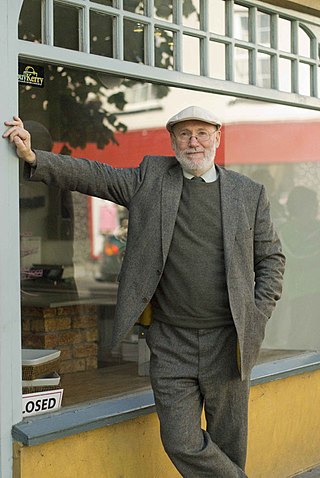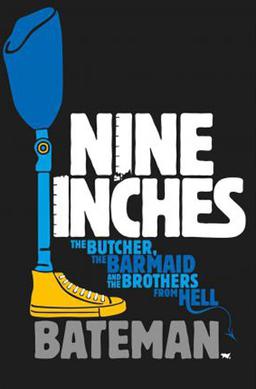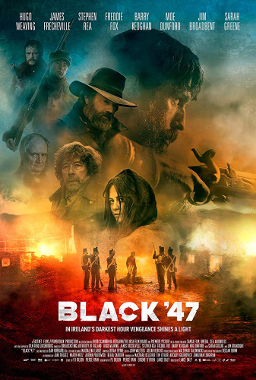
The legacy of the Great Famine in Ireland followed a catastrophic period of Irish history between 1845 and 1852 during which time the population of Ireland was reduced by 50 percent.
Although Irish has been used as a literary language for more than 1,500 years, and modern literature in Irish dates – as in most European languages – to the 16th century, modern Irish literature owes much of its popularity to the 19th century Gaelic Revival cultural movement. Writers in Irish have since produced some of the most interesting literature to come out of Ireland, supplemented by work produced in the language abroad.
A boycott is an organized ostracism as a means of protest.

Roddy Doyle is an Irish novelist, dramatist and screenwriter. He is the author of eleven novels for adults, eight books for children, seven plays and screenplays, and dozens of short stories. Several of his books have been made into films, beginning with The Commitments in 1991. Doyle's work is set primarily in Ireland, especially working-class Dublin, and is notable for its heavy use of dialogue written in slang and Irish English dialect. Doyle was awarded the Booker Prize in 1993 for his novel Paddy Clarke Ha Ha Ha.

Connemara is a region on the Atlantic coast of western County Galway, in the west of Ireland. The area has a strong association with traditional Irish culture and contains much of the Connacht Irish-speaking Gaeltacht, which is a key part of the identity of the region and is the largest Gaeltacht in the country. Historically, Connemara was part of the territory of Iar Connacht. Geographically, it has many mountains, peninsulas, coves, islands and small lakes. Connemara National Park is in the northwest. It is mostly rural and its largest settlement is Clifden.

Charles Cunningham Boycott was an English land agent whose ostracism by his local community in Ireland gave the English language the term boycott. He had served in the British Army 39th Foot, which brought him to Ireland. After retiring from the army, Boycott worked as a land agent for Lord Erne, a landowner in the Lough Mask area of County Mayo.

Captain Boycott is a 1947 British historical drama film directed by Frank Launder and starring Stewart Granger, Kathleen Ryan, Mervyn Johns, Alastair Sim and Cecil Parker. Robert Donat makes a cameo appearance as the Irish nationalist leader Charles Stewart Parnell. The film explains how the word boycott appeared in the English language. Ironically, the titular character plays a secondary role in the film, as an anti-hero, and the hero of the film is Hugh Davin.
The Nationalist Party was a term commonly used to describe a number of parliamentary political parties and constituency organisations supportive of Home Rule for Ireland from 1874 to 1922. It was also the name of the main Irish nationalist Nationalist Party in Northern Ireland from 1921 to 1978.

Inishbofin is a small island off the coast of Connemara, County Galway, Ireland. Inishbofin has around 180 inhabitants and is a tourist destination.

Joseph Victor O'Connor is an Irish novelist. His 2002 historical novel Star of the Sea was an international number one bestseller. Before success as an author, he was a journalist with the Sunday Tribune newspaper and Esquire magazine. He is a regular contributor to Raidió Teilifís Éireann (RTÉ) and a member of the Irish artists' association Aosdána.

Dermot Bolger is an Irish novelist, playwright, poet and editor from Dublin, Ireland. Born in the Finglas suburb of Dublin in 1959, his older sister is the writer June Considine. Bolger's novels include Night Shift (1982), The Woman's Daughter (1987), The Journey Home (1990), Father's Music (1997), Temptation (2000), The Valparaiso Voyage (2001) and The Family on Paradise Pier (2005). He is a member of the artist's association Aosdána.
The Limerick boycott, also known as the Limerick pogrom, was an economic boycott waged against the small Jewish community in Limerick, Ireland, between 1904 and 1906. It was accompanied by assaults, stone throwing and intimidation, which caused many Jews to leave the city. It was instigated in 1904 by a Redemptorist priest, Father John Creagh. According to a report by the Royal Irish Constabulary, five Jewish families left Limerick "owing directly to the agitation" while another 26 families remained.
Marita Conlon-McKenna is an Irish author of children's books and adult fiction. She is best known for her Famine-era historical children's book Under the Hawthorn Tree, the first book of the Children of the Famine trilogy, which was published in 1990 and achieved immediate success. Praised for its child-accessible yet honest depiction of the Great Famine, Under the Hawthorn Tree has been translated into over a dozen languages and is taught in classrooms worldwide. Conlon-McKenna went on to be a prolific writer and has published over 20 books for both young readers and adults. Her debut adult novel Magdalen was published in 1999.
Eugene McCabe was a Scots-born Irish novelist, short story writer, playwright, and television screenwriter. John Banville said McCabe was "in the first rank of contemporary Irish novelists'.

Nine Inches is the eighth novel of the Dan Starkey series by Northern Irish author, Colin Bateman, released on 13 October 2011 through Headline Publishing Group. Fellow crime author, Ian Rankin, recognised the book in The Scotsman as one of his "books of the year" 2011. It was also listed by author Nick Quantrill as one of his "Top 5 Books of 2011".
Eileen Battersby was the chief literary critic of The Irish Times. She sometimes divided opinion, having been described by John Banville as "the finest fiction critic we have", while attracting the ire of Eugene McCabe after she gave Dermot Healy an unfavourable review in 2011. Her first novel, Teethmarks on My Tongue, was published by Dalkey Archive Press in 2016.
Bad Day in Blackrock is a 2008 novel by Kevin Power. The plot was loosely based on the real-life death of Brian Murphy that occurred in Dublin in 2000 as a result of a violent assault outside a nightclub.

Black '47 is a 2018 Irish period drama film directed by Lance Daly. The screenplay is by PJ Dillon, Pierce Ryan, Eugene O'Brien and Lance Daly, based on the Irish-language short film An Ranger, written and directed by Dillon and Ryan. The film stars Hugo Weaving, James Frecheville, Jim Broadbent, Stephen Rea, Freddie Fox, Barry Keoghan, Moe Dunford, and Sarah Greene. Set in Connemara during the Great Irish Famine, the film follows an Irish Catholic soldier who has been fighting for the British Army abroad, as he deserts his regiment to reunite with his family. The title is taken from the most devastating year of the famine, 1847, which is referred to as "Black '47".










